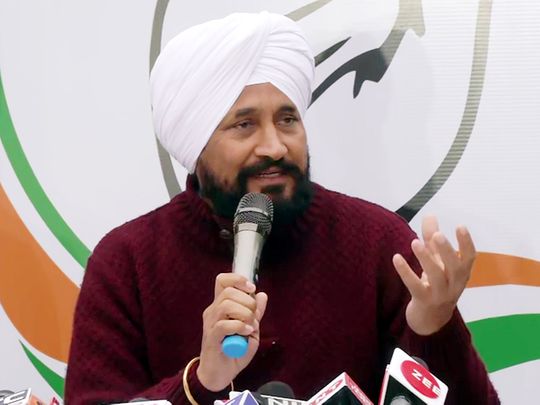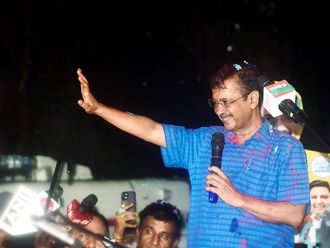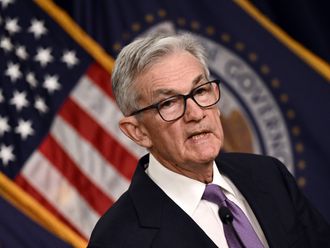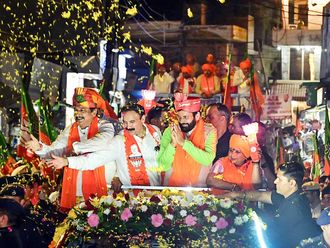
Basant Panchami in Punjab fuses the past with the present, it is a time when the rustic kites of childhood still aim for the skies and the inviting yellow mustard of the sprawling fields wait for Shah Rukh Khan and Kajol to do an encore.
This year it coincided with the state staring down at one of the harshest winters in recent years, the season the Punjabi will tell you is in sync with all that doesn’t glitter behind the election headlines.
The festival though brought good tidings and a spring in the step of at least one man- Charanjit Singh Channi. Rahul Gandhi’s announcement that “Punjab needs a leader who can understand the poor” was unprecedented for a party that not just dithers on leadership issues but also shies away from putting a CM name to a face.
But with a belligerent Navjot Singh Sidhu breathing down time had run out. (Although, with Sidhu there is no guarantee when his wounded tiger avatar resurfaces)
The green signal for Channi to lead the state again if the Congress comes back to power is just not about announcing the victor of this duel, more importantly it also signifies a tectonic shift in the socio- economic dimension of Punjab politics which for decades has been dominated by the upper castes and landlords. Channi on the other hand, is a Dalit from a state which is home to the highest number of scheduled castes in the country.
Channi has an upper hand
32% of Punjab’s population is Dalit and is primarily centred in the Doaba region where Channi seems to have the upper hand although his stand during the PM’s visit could also get him votes in the other two regions of Malwa and Majha.
In 2017, the Congress won 41% of the Dalit votes and 34 seats in the state are reserved but will it be enough to break the anti-incumbency jinx? The state has only once voted a party back when in 2012 it returned SAD- BJP to power.
With 39 sub- castes, Dalits are not a homogenous unit and hence do not vote en masse. History shows that even BSP founder Kanshi Ram despite being a Punjabi Dalit could never really consolidate a vote-bank in the state.
While Mayawati is in alliance with the Shiromani Akali Dal for these elections, Channi, like Kanshi Ram, belongs to the Ravidassias sect whose prominence can be gauged from the EC’s decision to postpone dates of the Punjab polls by 6 days due to birth anniversary of their Guru Ravidas.
Where does the math then leave the Jat Sikhs and the Hindu vote? Will Congress’s first strike- other parties have agreed to make a Dalit a deputy CM, leave the door ajar for Kejriwal’s AAP to sneak in?
Representing 20% of the population, Jat Sikhs who have overwhelmingly ruled Punjab Politics until now are for the first time hearing more than a murmur questioning the hesitancy of political parties to make a Hindu chief minister.
Channi’s anointment was followed by former state chief Sunil Jakhar, seen as a prominent Hindu face, quitting active politics, something that could queer the pitch for the Congress with its traditional upper caste Hindu vote bank. Jakhar has lashed out at veteran leader Ambika Soni’s words that no Hindu can rule Punjab.
But for the first time since 1977, the state not only has a choice to vote a man who is a non- Jat Sikh, the Congress’s gamble has also taken away the spotlight from the elitist backgrounds of those who have rotated power.
Between sound, fury and blackmail
Former chief minister and maharaja Amarinder Singh was accused of seldom being accessible, (the joke doing the rounds in the state is that Captain who was always sleeping, now never sleeps) Sukhbir Badal is still not considered a chip of the old block when it comes to campaigning like Parkash Singh Badal who has been on the road even at the age of 94, and between sound, fury and blackmail Navjot Singh Sidhu has exemplified entitlement.
Bhagwant Mann rounds up the last of the big names in these elections, but the AAP’s top nominee has only one thing in common with them- he too belongs to the Jat caste.
The similarity ends there. Much like Channi playing to the masses, Mann is the other half of the changing political landscape in the state. There is nothing that distinguishes him from a man on the street- the Aam Aadmi, whether in Fatehgarh or Ropar.
He lives in a rented house and says he fears no raids (you know it is election season when raids begin on opposition leaders and their relatives), he has battled both alcohol and memes along the way and knows his biggest challenge is within.
‘Hun ek mauka kejriwal nu’ (now one chance to Kejriwal) is splashed across billboards in big towns and rural Punjab with Arvind Kejriwal’s face splattered across them. There is nothing subtle in either the vote seeking or the ambitions, perhaps a reason why the party took so long to announce Mann’s name.
AAP jumping into the Sunil Jakhar controversy though has not gone down well in the state. Many have questioned Raghav Chadha’s “second class citizen” attack on the Congress as an attempt to play the communal card. Ironically it was Kejriwal who himself said, “our CM face will be from the Sikh community. It is their right and it will remain with them.”
Congress versus AAP
For now, the battle lines are drawn between AAP and the Congress. Kejriwal speaks about bringing the ‘Delhi model’ to Punjab, but many voters will tread with caution, they haven’t forgotten his 2017 dalliance with NRIs, allegations of foreign funding and allegedly staying at a militant’s house. If there is one issue that binds the state, it is the turmoil of the past.
In this medley of caste dynamics and political desperation, Punjab votes on February 14. Winning the elections may be easier, restoring the state to its former glory will need more than rhetoric and number crunching.
Once rich with surplus food and a sporting legacy, Punjab has plummeted to rate among the five worst states with unemployment figures of 7.4% that are much higher than the national average of 4.8%.
The state’s debt is at an all- time high sending more and more families either to Canada or into the clutches of drugs. If Sidhu would take a moment away from politicking, he would notice how the village of Maqboolpura in his constituency became the infamous village of widows and orphans, families who have seen their men die in front of them with drug addiction.
Tearing power bills, freebies or job promises on the poll trail are no longer enough for the Punjabi, whoever inherits the state will have to think out of the box. Basant Panchami is a reminder of the golden era gone by. Will any party promise to bring it back?










